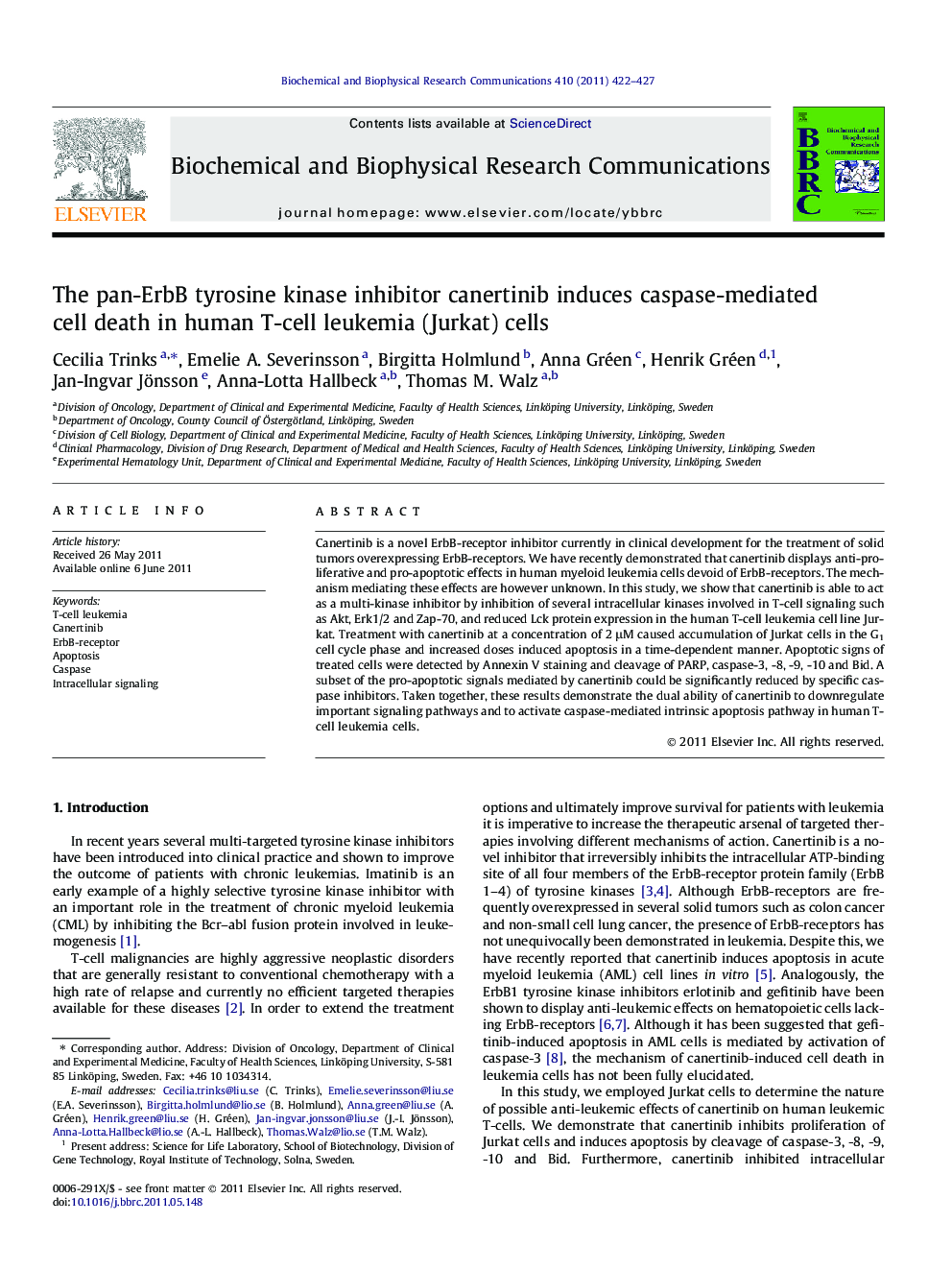| Article ID | Journal | Published Year | Pages | File Type |
|---|---|---|---|---|
| 1930510 | Biochemical and Biophysical Research Communications | 2011 | 6 Pages |
Canertinib is a novel ErbB-receptor inhibitor currently in clinical development for the treatment of solid tumors overexpressing ErbB-receptors. We have recently demonstrated that canertinib displays anti-proliferative and pro-apoptotic effects in human myeloid leukemia cells devoid of ErbB-receptors. The mechanism mediating these effects are however unknown. In this study, we show that canertinib is able to act as a multi-kinase inhibitor by inhibition of several intracellular kinases involved in T-cell signaling such as Akt, Erk1/2 and Zap-70, and reduced Lck protein expression in the human T-cell leukemia cell line Jurkat. Treatment with canertinib at a concentration of 2 μM caused accumulation of Jurkat cells in the G1 cell cycle phase and increased doses induced apoptosis in a time-dependent manner. Apoptotic signs of treated cells were detected by Annexin V staining and cleavage of PARP, caspase-3, -8, -9, -10 and Bid. A subset of the pro-apoptotic signals mediated by canertinib could be significantly reduced by specific caspase inhibitors. Taken together, these results demonstrate the dual ability of canertinib to downregulate important signaling pathways and to activate caspase-mediated intrinsic apoptosis pathway in human T-cell leukemia cells.
► Canertinib induces caspase-mediated apoptosis in T-cell leukemia cells in vitro. ► Canertinib mediates activation of the intrinsic apoptotic pathway. ► Canertinib induces apoptosis in an ErbB receptor independent manner. ► Lymphocyte specific proteins as well as survival kinases are inhibited. ► Canertinib may act as a multi-kinase inhibiting drug in human T-cell malignancies.
